Best metal amps 2025: get juggernaut tones with these heads and combos
Tube, solid-state and digital guitar amplifiers... these are the best amps for metal from Mesa/Boogie, Orange, Peavey and more
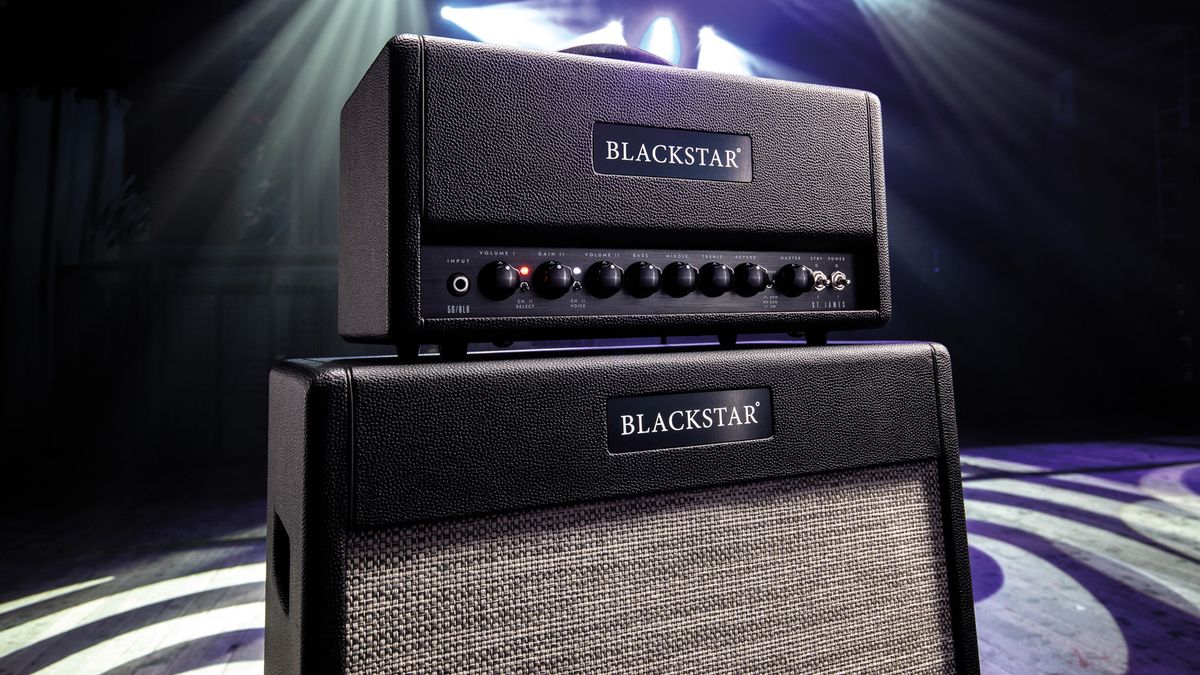
The best metal amps should come with heaps of gain and high-end attack but also the clarity and articulation your playing needs. It’s a very particular set of skills and the amplifier you choose will be the key to entering the monolithic kingdom of tones heavier music thrives in. That’s where this guide to the best metal amps comes in.
Of course, different overdrive pedals can be used to add some volume boost and extra dirt, and pickup choice can certainly help harness the full sonic potential of your guitar, but many of the most incredible metal tones ever recorded simply boil down to the chosen guitar amp, speaker and how it was dialled in.
If you want to know what we think are the best metal amps on the planet right now, keep scrolling, or hit the buying advice button above to find out the science behind the current cream of the metal amp crop.
Best metal amp: MusicRadar's choice
Metallica and Tool have been responsible for some of the most jaw-dropping high gain tones in heavy metal history – both bands making good use of their Diezel VH4s over the years and to great effect. Truth be told, it seems like this four-channel 100-Watter, also used by the likes of Matt Bellamy, Myles Kennedy and Billy Corgan, will never ever go out of fashion.
For anyone on a tighter budget, you really can’t go wrong with Mark Tremonti’s PRS MT 15 lunchbox head. A meticulously assembled 15-watter, the MT 15 delivers boutique-vibed distortion tones for a modest outlay, all while boasting a snappy clean channel and switchable LEDs.
Best metal amps: Product guide
MusicRadar's got your back
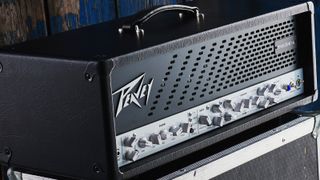
Specifications
Reasons to buy
Reasons to avoid
Peavey’s 6505 (originally dubbed the 5150 before Eddie Van Halen parted ways with the company) has long been heralded as the contemporary metal head to beat - until now. Periphery mastermind and influential djent maverick Misha Mansoor partnered with Peavey to refresh the format for today’s players, and (forgive us) knocked it out of the park.
Offering a more refined, multi-layered distortion than its forebear, the Invective 120 packs a trio of channels - including a surprisingly accomplished clean - each with pre- and post-level controls and individual boosts.
Just about everything you could hope for has been covered, including a built-in noise gate, half-power switching and two assignable series effects loops. This really is the modern metal head perfected.
Read our full Peavey Invective 120 Head review
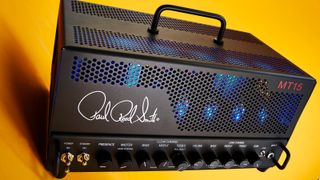
Specifications
Reasons to buy
Reasons to avoid
The Alter Bridge guitarist spec’d out this compact head to deliver professional-quality tones at an affordable price point, and he absolutely nailed it - you’d struggle to find better distorted tones for the money.
Two channels are onboard, but naturally, it’s the MT 15’s distorted side that’s the main selling point here, with the kind of saturated tones you’d expect to hear from boutique brands like Bogner or Diezel, but with a more manageable 15W output, which can be dropped down to 7W.
There’s also a Twin-voiced clean channel with switchable boost, plus a series effects loop – and even LEDs that change from blue to red when you kick in the distortion channel.
Read our full PRS MT 15 Mark Tremonti review
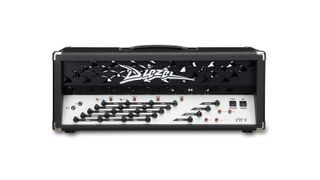
Specifications
Reasons to buy
Reasons to avoid
The VH4 counts the likes of James Hetfield, Billy Corgan and Matt Bellamy among its artist roster, and with good reason: this German-engineered monster is truly a modern classic.
A 100W output is teamed with four preamp channels, each with their own distinctive tone, spanning clean, classic-rock crunch, high-gain rhythm and lead. Make no mistake: the cleans are nothing to write home about, but the defined, harmonically rich distortion sounds are truly among the best in the world.
What’s more, each channel has its own individual insert, while the effects loop can be configured as serial or parallel.
Read our full Diezel VH4 review
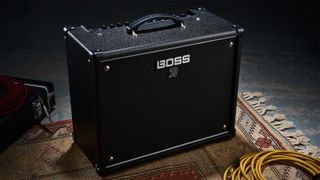
Specifications
Reasons to buy
Reasons to avoid
Boss’s ingenious Tube Logic solid-state/DSP technology is the secret behind this versatile combo, which punches well above its price point in both features and tone.
Five voices are onboard: Acoustic, Clean, Crunch, Lead and Brown, with the latter providing the tight, high-gain solo tones of your dreams, while each sound can be stored in one of eight tone-setting memories.
There’s a stunning array of effects included, too, spanning all the modulations, delays and reverbs you could ask for, as well as direct USB recording, power scaling, a choice of cabinet resonance and a built-in tilt-stand.
Read our full Boss Katana 50 Gen 3 review
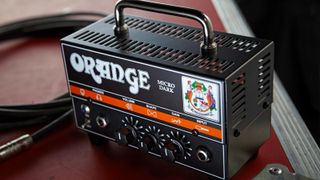
Specifications
Reasons to buy
Reasons to avoid
Its proportions are ridiculously small, with a price to match, but underestimate the Micro Dark at your peril. This diminutive head is very much a real amp, boasting a 20W solid-state power stage teamed with a 12AX7 tube preamp.
The Micro Dark’s tones are utterly authentic, too, with sounds that capably ape the company’s $2,000+ Dual Dark heads and plenty of gain on tap.
Sure, it’s hardly versatile - there’s only one channel - but you’d be surprised how much mileage you can get out of the mid-tweaking Shape control, while a built-in CabSim emulation makes this a handy headphone amp, too.
Read our full Orange Micro Dark review
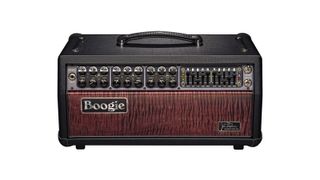
Specifications
Reasons to buy
Reasons to avoid
If your playing is of the prog-metal persuasion, you’d be hard-pressed to better this awe-inspiring head from the Dream Theater speed demon.
Essentially a heavily updated take on Mesa’s legendary Mark IIC+, this Boogie somehow manages to cram three independent channels and two separate five-band graphic EQs into its diminutive chassis.
There’s also an abundance of voicing switches - including a Shred mode - built-in CabClone speaker-emulated DI output and 100/60W power switching, while serious tech-heads can control the whole lot via MIDI. The tones more than deliver, too, with the kind of fat, smooth high-gain sounds that have seen original Mark IIC+ prices soar in recent years.
Read our full Mesa Engineering JP-2C Head review
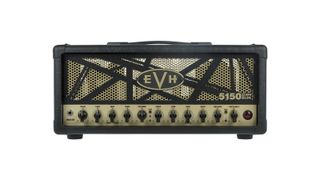
Specifications
Reasons to buy
Reasons to avoid
This impressively put-together head distils Eddie Van Halen’s arena-demolishing tone into a 50W format, equipped with an EL34 power section, just like Eddie used back in the day.
Three channels do your clean, crunch and lead business, with a shared EQ across 1 and 2, and a dedicated EQ for the third. All three shoot for hot-rodded Plexi tones, and deliver on all fronts, with the kind of crystalline cleans, hard-rock crunch and hugely dynamic solo tones you’d hope for from an amp with this kind of lineage, making it one of the best amps for old-school metal tones.
Add in MIDI control, presence and resonance, and a series effects loop, and this is a pro-quality touring head worthy of the world’s biggest stages.
Read our full EVH 5150III 50W EL34 review
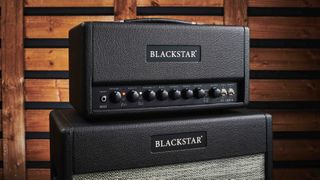
Specifications
Reasons to buy
Reasons to avoid
Blackstar's St James series really showcases the best of what the British company offers, and this 6L6 version brings a Fender-inspired clean channel alongside a two-voice second channel that's great for classic metal and more contemporary tones.
It's also notably lightweight in head, cab and combo iterations; an exclusive Celestion Zephyr speaker, based on a Vintage 30 and noticeably lighter and candlenut cab wood. Even the universal voltage transformer here is optimised for size and weight efficiency.
With 2W and SAG modes alongside the full-fat 50W experience, this amp offers flexibility for home, stage and studio. The onboard CabRig output also allows players to have three detailed speaker simulation presets that can be dialled in for DI use.
Read our full Blackstar St James 6L6 review
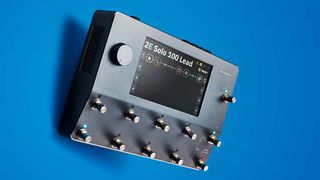
Specifications
Reasons to buy
Reasons to avoid
In a tough, competitive market Neural's debut modelling amp and effects processor continues to impress for the sheer quality of its tones and user experience. It sets a design benchmark and if you want heavy, Neural gives you heavy!
That clever design is in everything from the touchscreen signal chains you can build to pedal switches that double as rotary controls, all the better for dialing in an exceptional array of detailed amp models from the 5150 to the Dual Rectifier, Herbert, Soldano and Hetfieldian Mark IIC+. Alongside stone-cold classic Fenders and Marshalls. It's a lot. And you can also profile other amps and pedals.
We're still waiting for Neural to add its desktop editing software (we suspect the latter isn't far off) and the ability to add presets from its acclaimed signature Archetype and amp plugins but the stock offering here is enough to convert some valve purists into the digital wonderland.
Read our full Neural DSP Quad Cortex review
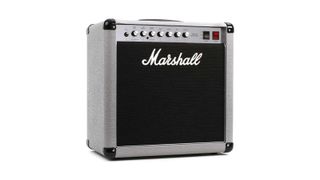
10. Marshall 2525C Studio Silver Jubilee
Our expert review:
Specifications
Reasons to buy
Reasons to avoid
Blues rock virtuoso Joe Bonamassa has used numerous amps over the years, but the Marshall Jubilee has always remained a firm favourite for some of his higher gain sounds. It’s capable of a lot more than blues rock too – with some truly mouth-watering metal tones that will cover everything from Black Sabbath to Megadeth, Slayer and beyond.
This well-priced 20-Watt version of the classic Marshall amp launched in 1987 is worthy of its rich legacy, offering two channels (which is one more than the other models in the Studio series), as well as power reduction down to a practice-friendly 5-Watts and a pull rhythm clip for extra distortion. And finally, of course, there’s that silver aesthetic – which certainly feels more boutique than the standard Marshall finishes in black and gold.
Read the full Marshall 2525C Studio Silver Jubilee review
Best amps for metal: Buying advice
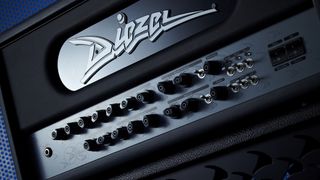
When assessing what makes the cut for the best metal amp, a killer distortion channel is flat-out essential, but there are a few other considerations you'll need to factor in too.
Best metal amps: Tone
It's worth taking the time to really think about the tonal quality you are hoping to get out of your new amp - and, more importantly, the level of gain you need on tap. Suppose you're looking to go down the valve route. In that case, you'll need to carefully consider the type of valves hidden under the hood - this is what gives the amp its sonic characteristics. For a creamy British tone, then look no further than the EL84 or EL34. The humble 6L6 has long been tied to the crystal clean tone of Fender, but in the metal world, it is more associated with the bone-crushing tone of Mesa Boogie. There is no right or wrong answer, experiment and see what suits your playing style best.
Best metal amps: How much volume do I need?
Many metal-orientated heads – for example, the Diezel VH4, Mesa/Boogie JP-2C, and EVH 5150III 50W EL34 – are designed to be played loud. That's no problem if you're already established on a local gigging scene, but if you're just starting out or playing in your bedroom, you probably want something a little more manageable.
That's where solid-state and digital offerings strike a fine balance between live and home use. This includes affordable combos such as the Boss Katana-100, through to pro-quality processors like the Neural Quad Cortex and Fractal Audio's Axe-Fx III. Each of these metal amps can deliver formidable high-gain sounds at any volume, making them suitable for the (home) studio and the stage.
Best metal amps: Do I need a clean channel?
You may also want to weigh up the importance of a clean channel. Increasingly, you can find utterly usable clean channels for those arpeggiated middle 8s, but some all-tube amp heads require you to compromise somewhat on your non-dirty sounds.
Best metal amps: Effects
There's also the question of effects when it comes to the best metal amps: solid-state and digital offerings come loaded with modulations and delays to bolster your sound, but traditional tube heads will give you a reverb at most.
External effects are likely to be more versatile in this regard, so don't discount any amp that isn't packed with bells and whistles: if it's made the cut here, you can rest assured it has an effects loop (to keep your pedals sounding their best, post-distortion), not to mention tone to die for.
Find out more about how we test music gear and services at MusicRadar.
Related buyer's guides
- Try the 10 best distortion pedals for metal
- Spend less with the best budget guitar amps under $500/£500
- Improve your playing with the best practice amps
- These are the current best metal guitars for every budget
- Enter seventh heaven with the best 7-string guitars
- Floor it with the best pedalboards for guitarists
- Power up with the best pedalboard power supplies
Get the MusicRadar Newsletter
Want all the hottest music and gear news, reviews, deals, features and more, direct to your inbox? Sign up here.
Mike is Editor-in-Chief of GuitarWorld.com, in addition to being an offset fiend and recovering pedal addict. He has a master's degree in journalism, and has spent the past decade writing and editing for guitar publications including MusicRadar, Total Guitar and Guitarist, as well as a decade-and-a-half performing in bands of variable genre (and quality). In his free time, you'll find him making progressive instrumental rock under the nom de plume Maebe.
- Rob LaingReviews Editor, GuitarWorld.com and MusicRadar guitars
- Amit Sharma
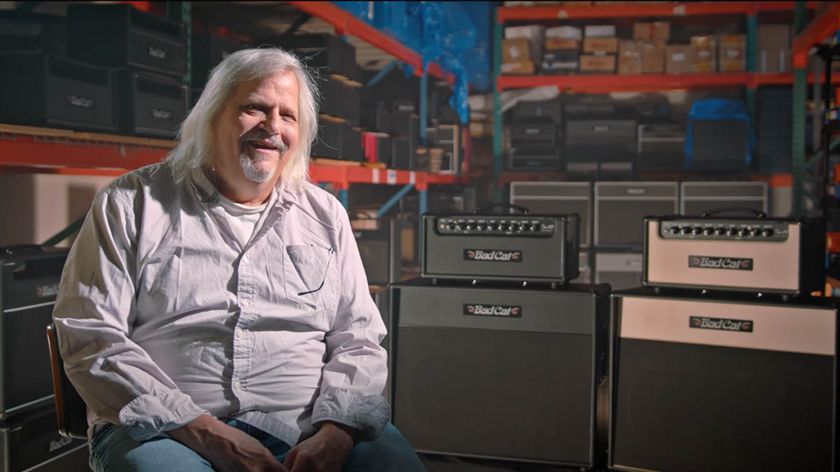
“His original designs set a benchmark for tone, craftsmanship, and reliability”: Bad Cat's legendary boutique amp designer Mark Sampson has died
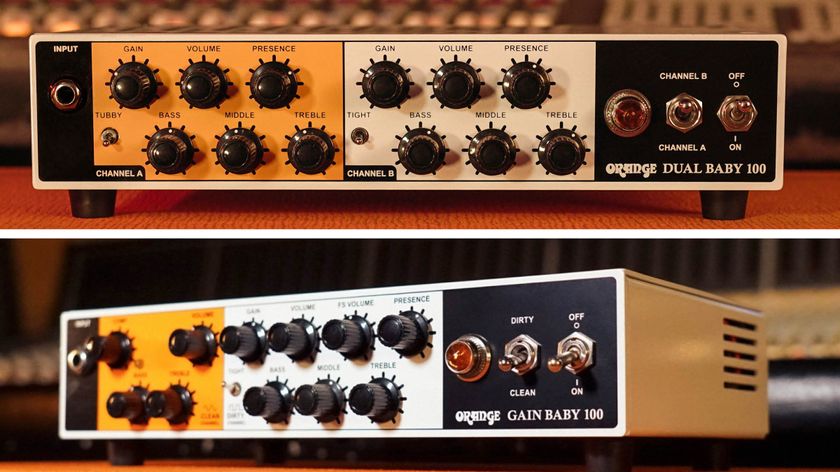
“A wide variety of tones and high-power output for assembling a fly rig with no performance compromises”: Orange Dual Baby 100 and Gain Baby 100 review

